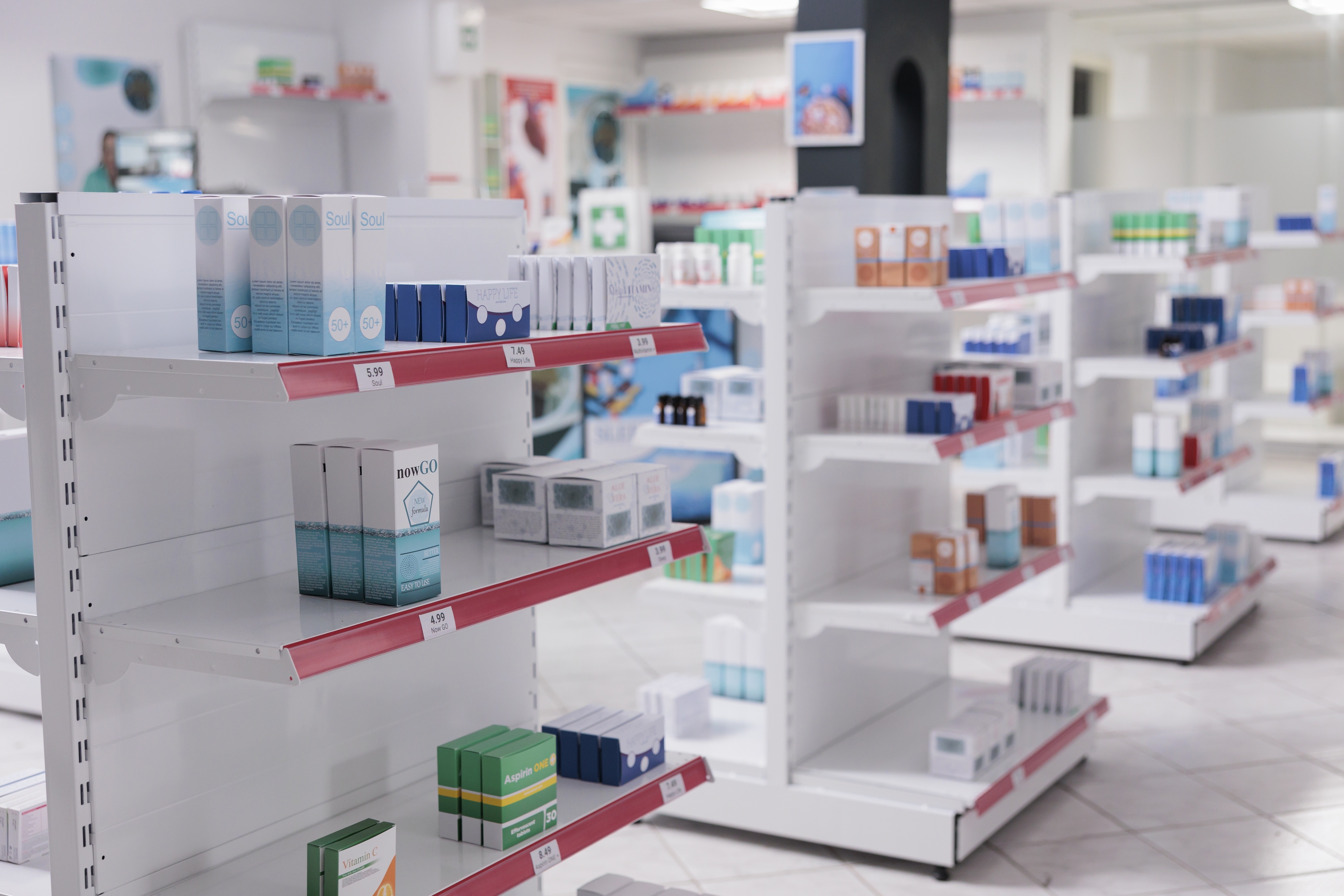/reboot/media/4a8df14a-8cc2-11f0-9adc-1a3d8e5696a4/254a6602-48f3-11ef-a947-0242ac120012/1-1-shutterstock-petite-2085754456.jpg)
Pharmacies in fragile territories: a response to accessibility challenges
Medical deserts represent a growing problem in France, threatening equitable access to care for many rural communities. These areas, referred to as "fragile territories," are characterized by a low density of healthcare professionals, including pharmacists, making access to medical services difficult for their residents. Faced with this alarming situation, the government responded by publishing a decree and a ministerial order on July 7, 2024. These texts precisely define the criteria for territorial fragility and introduce various support measures for pharmacies located in these areas. This initiative aims to ensure a better distribution of pharmaceutical services across the country, thereby strengthening social cohesion and equal opportunities in healthcare.
Definition and identification of fragile territories

Definition criteria
Fragile territories are defined by two main criteria that allow us to target areas requiring increased support. The first criterion is a pharmacy density lower than two‑thirds of the national median density. In concrete terms, this means that in these territories, the number of pharmacies per capita is significantly lower than the national average. The second criterion concerns geographical accessibility: more than 20% of the population must travel more than 15 minutes by car to reach the nearest pharmacy.
Regions concerned
These criteria make it possible to precisely identify geographical areas where access to pharmaceutical services is insufficient. For example, Normandy and Grand Est have 13.3% and 11.5% of their populations, respectively, living in areas classified as fragile, indicating a particularly acute problem of access to care in these regions.
Special cases
Some regions, such as Corsica and French Guiana, have even more alarming rates. In Corsica, 18.8% of the population lives in fragile areas, a figure that rises to 54.3% in French Guiana, illustrating a marked regional disparity in terms of access to healthcare. These figures clearly indicate that specific measures are needed to address these imbalances and ensure equitable access to healthcare services for all French citizens.
Importance of ARS
Regional Health Agencies (ARS) play a crucial role in implementing these criteria. They are responsible for enforcing national standards, but they also have the flexibility to adapt them to regional specificities. The goal of such flexibility is to better respond to local needs and offer solutions tailored to each region.
Regulatory framework and legislative measures

Publication of official texts
July 7, 2024, marks a key date in the fight against medical deserts in France with the highly anticipated publication of the decree and ministerial order concerning fragile territories. These texts, following a long period of consultation and revision, establish the terms and conditions under which a territory can be classified as fragile and benefit from specific support measures.
Role of regional health agencies (ARS)
The Regional Health Authorities (ARS) play a central role in implementing and adapting these new provisions. Responsible for determining the list of vulnerable areas in their region, they have significant leeway to adapt national criteria to local specificities, thus making it possible to adjust the criteria to better meet the realities on the ground and the needs of local populations.
Criteria and adaptations
The pharmacy density and access distance criteria are the pillars of this system, but the ARS can introduce additional criteria to refine the targeting of fragile territories. For example, in regions where geographical or demographic characteristics require a different approach, the ARS can adjust the thresholds to include areas that do not strictly meet the national criteria but which nevertheless present significant accessibility challenges.
Legislative framework and political support
The adoption of this legislative framework was supported by various parliamentary initiatives, including a bill tabled by several senators to accelerate the implementation of these measures. This law, aimed at preserving access to pharmacies in rural communities, was a catalyst for the rapid publication of implementing decrees, illustrating the commitment of legislators to addressing this crucial issue.
Support measures for pharmacies

Financial aid
To encourage the establishment and maintenance of pharmacies in fragile areas, specific financial aid has been put in place. These subsidies aim to offset the additional costs associated with operating in areas with low population density and less economic activity. They include direct aid for the opening, transfer, or consolidation of pharmacies, as well as tax incentives for pharmacists operating in these regions.
Relaxation of transfer and regrouping rules
The decree also provides for a relaxation of the rules governing the transfer and consolidation of pharmacies in fragile areas. This includes simplified and accelerated procedures for applications to create new pharmacies or transfer existing ones. The objective is to facilitate the reorganization of the pharmacy network to optimize the accessibility and quality of pharmaceutical services in these areas.
Pilot initiatives and experiments
Alongside regulatory measures, pilot initiatives are being implemented to test new approaches. For example, the "pharmaceutical antennas" project will allow a pharmacy threatened with closure to be taken over by a neighboring pharmacy. The latter will delegate an assistant pharmacist to ensure a regular presence and continuity of pharmaceutical services in the affected area. This experiment, planned to last two years in several regions, aims to find sustainable solutions to maintain access to medication in rural areas (Le Moniteur des pharmacie.fr).
Impact and perspectives
These measures, by strengthening the pharmacy network and supporting struggling pharmacies, will have a significant impact on public health in fragile areas. They will not only ensure access to medicines, but also strengthen the role of pharmacists as local healthcare providers, thereby contributing to the well‑being and quality of life of local populations.
Testimonials from professionals and residents
Testimonies from healthcare professionals and residents of vulnerable areas underscore the importance of these measures. Pharmacists express relief at the financial aid and the relaxation of regulations that allow them to continue serving their communities. Residents, for their part, appreciate having easier access to medications and health advice without having to travel long distances.
Recent measures to support pharmacies in vulnerable areas are essential to ensuring equitable access to pharmaceutical care across France. By strengthening the pharmacy network and facilitating the establishment and retention of pharmacies in these areas, the government is proactively addressing the challenges posed by medical deserts. These initiatives not only improve access to medications and health advice, but also contribute to social cohesion and economic development in rural areas.
As a key player in the sector, Pharmafield is committed to supporting pharmacies and pharmaceutical companies through this transition. Our expertise in strategy, recruitment, and interprofessional collaboration is available to help pharmacies make the most of the new opportunities offered by these measures. We remain at your disposal to provide personalized advice and support you in your implementation and development projects.
For more information and personalized advice, please contact our experts at Pharmafield. ⬇️
:strip_exif()/reboot/media/4a8df14a-8cc2-11f0-9adc-1a3d8e5696a4/0f7612d6-5974-11ea-a4ee-0242ac130005/1-1-logo.png)
:strip_exif()/reboot/media/4a8df14a-8cc2-11f0-9adc-1a3d8e5696a4/0f7612d6-5974-11ea-a4ee-0242ac130005/1-1-logo.png)
:strip_exif()/reboot/media/4a8df14a-8cc2-11f0-9adc-1a3d8e5696a4/364cce60-d650-11ee-bead-0242ac12000a/1-1-pharmaceutiques-logo.png)
/reboot/media/4a8df14a-8cc2-11f0-9adc-1a3d8e5696a4/65756118-6985-11ed-ad9a-0242ac14000b/1-1-2001-i126-022-medical-conference-set-05-jpg.png)
:strip_exif()/reboot/media/4a8df14a-8cc2-11f0-9adc-1a3d8e5696a4/b2360efc-e43d-11ed-a055-0242ac140005/1-1-1-image-video-11-04-23.png)
:strip_exif()/reboot/media/4a8df14a-8cc2-11f0-9adc-1a3d8e5696a4/4d3fc3e8-67db-11f0-8984-365b7e6e4d74/1-1-picture-petit-of-attractive-saleswoman-on-meeting-in-off-2023-11-27-05-36-18-utc-copie.jpg)